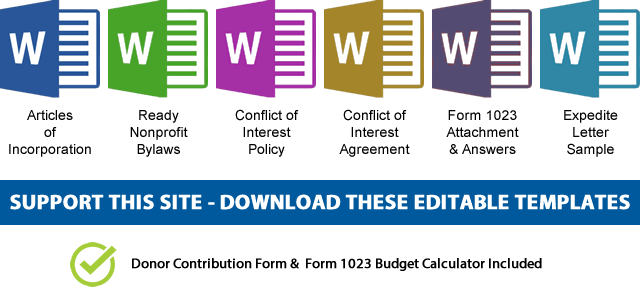Unrelated Business Income Tax as it applies to Churches and religious organizations
Churches and religious organizations, like other tax-exempt organizations, may engage in income-producing activities unrelated to their tax-exempt purposes, as long as the unrelated activities aren’t a substantial part of the organization’s activities. However, the net income from these activities will be subject to the Unrelated Business Income Tax if the following three conditions are met:
- the activity constitutes a trade or business,
- the trade or business is regularly carried on, and
- the trade or business is not substantially related to the organization’s exempt purpose. (The fact that the organization uses the income to further its charitable or religious purposes does not make the activity substantially related to its exempt purposes.)
Exceptions to church UBIT
Even if an activity meets the above criteria, the income may not be subject to tax if it meets one of the following exceptions:
- (a) substantially all the work in operating the trade or business is performed by volunteers,
- (b) the activity is conducted by the organization primarily for the convenience of its members or
- (c) the trade or business involves the selling of merchandise substantially all of which was donated.
In general, rents from real property, royalties, capital gains, and interest and dividends aren’t subject to the unrelated business income tax unless financed with borrowed money.
Examples of Unrelated Trade or Business Activities of a church
Advertising
Many tax-exempt organizations sell advertising in their publications or other forms of public communication. Generally, income from the sale of advertising is unrelated trade or business income. This may include the sale of advertising space in weekly bulletins, magazines or journals, or on church or religious organization websites.
Gaming
Most forms of gaming, if regularly carried on, may be considered the conduct of an unrelated trade or business. This can include the sale of pull-tabs and raffles. Income derived from bingo games may be eligible for a special tax exception (in addition to the exception regarding uncompensated volunteer labor), if:
- (a) the bingo game is the traditional type of bingo (as opposed to instant bingo, a variation of pull-tabs),
- (b) the conduct of the bingo game is not an activity carried out by for-profit organizations in the local area and
- (c) the operation of the bingo game does not violate any state or local law.
For further explanation please visit the gaming and gambling laws and procedures for 501c3 organizations.
Sale of merchandise and publications
The sale of merchandise and publications (including the actual publication of materials) can be considered the conduct of an unrelated trade or business if the items involved do not have a substantial relationship to the exempt purposes of the organization.
Rental income
Generally, income derived from the rental of real property and incidental personal property is excluded from unrelated business income. However, there are certain situations in which rental income may be unrelated business taxable income:
- if a church rents out property on which there is debt outstanding (for example, a mortgage note), the rental income may constitute unrelated debt-financed income subject to UBIT. (However, if a church or convention or association of churches acquires debt-financed land and intends to use it for exempt purposes within 15 years of the time of acquisition, then income from the rental of the land may not constitute unrelated business income.)
- if personal services are rendered in connection with the rental, then the income may be unrelated business taxable income.
Parking lots
If a church owns a parking lot that is used by church members and visitors while attending church services, any parking fee paid to the church would not be subject to UBIT. However, if a church operates a parking lot that is used by members of the general public, parking fees would be taxable, as this activity would not be substantially related to the church’s exempt purpose, and parking fees are not treated as rent from real property. If the church enters into a lease with a third party who operates the church’s parking lot and pays rent to the church, these payments would not be subject to tax, as they would constitute rent from real property.
Whether an income-producing activity is an unrelated trade or business activity depends on all the facts and circumstances. For more information, see IRS Publication 598, Tax on Unrelated Business Income of Exempt Organizations.
Tax on Income Producing Activities
If a church, or other exempt organization, has gross income of $1,000 or more for any taxable year from the conduct of any unrelated trade or business, it must file IRS Form 990-T, Exempt Organization Business Income Tax Return, for that year.
If the church is part of a larger entity (such as a diocese), it must file a separate Form 990-T if it has a separate EIN. Form 990-T is due the l5th day of the 5th month following the end of the church’s tax year. (IRC Section 512(b)(12) provides a special rule for parishes and similar local units of a church. A specific deduction is provided, which is equal to the lower of $1,000 or the gross income derived from any unrelated trade or business regularly carried on by the parish or local unit of a church.)
Employment Tax
Generally, churches and religious organizations are required to withhold, report and pay income and Federal Insurance Contributions Act (FICA) taxes for their employees. Employment tax includes income tax and FICA taxes withheld and paid for an employee. Substantial penalties may be imposed against an organization that fails to withhold and pay the proper employment tax. Whether a church or religious organization must withhold and pay employment tax depends upon whether the church’s workers are employees. Determination of worker status is important.
Several facts determine whether a worker is an employee. For an in-depth explanation and examples of the common law employer-employee relationship, SEE EMPLOYEE PAGE. If a church or a worker wants the IRS to determine whether the worker is an employee, the church or worker should file IRS Form SS-8, Determination of Worker Status for Purposes of Federal Employment Taxes and Income Tax Withholding, with the IRS.
Social Security and Medicare Taxes — Federal Insurance Contributions Act (FICA)
FICA taxes consist of Social Security and Medicare taxes. Wages paid to employees of churches or religious organizations are subject to FICA taxes unless one of the following applies:
- wages are paid for services performed by a duly ordained, commissioned or licensed minister of a church in the exercise of his or her ministry, or by a member of a religious order in the exercise of duties required by such order; or
- a church that is opposed to the payment of Social Security and Medicare taxes for religious reasons files IRS Form 8274 , Certification by Churches and Qualified Church-Controlled Organizations Electing Exemption From Employer Social Security and Medicare Taxes. Very specific timing rules apply to filing Form 8274. It must be filed before the first date on which the electing entity is required to file its first quarterly employment tax return. This election does not relieve the organization of its obligation to withhold income tax on wages paid to its employees. In addition, if an employee makes such an election and earns more than $108.28 in wages in a calendar year, he or she must pay Self-Employment Contributions Act (SECA) tax.
 NOTE: If you’d like to receive the following organizing documents:
NOTE: If you’d like to receive the following organizing documents:- Nonprofit Articles of Incorporation,
- Nonprofit Bylaws,
- Nonprofit Conflict of Interest Policy,
- Conflict of Interest Policy Acknowledgment,
- Form 1023 Attachment with all the answers,
- Form 1023 Expedite Letter template,
- and Donor Contribution Form
in Microsoft Word Document format, please consider making a donation and you’ll get to download them immediately. Not only they're worth well over $1000 in value, they will save you weeks of copy pasting and formatting as they are ready to go templates which only need changing names and addresses.

